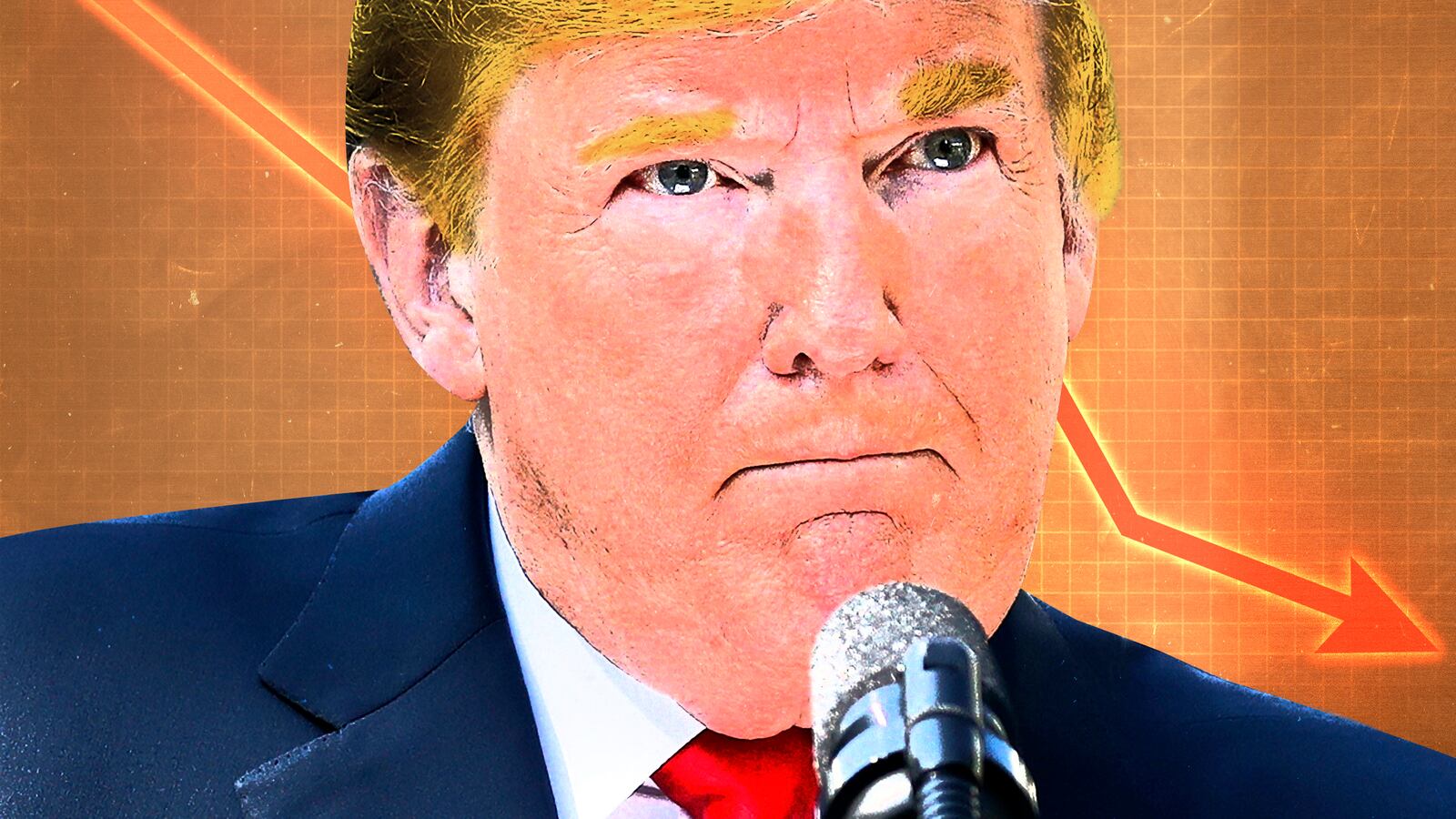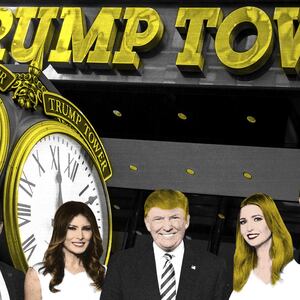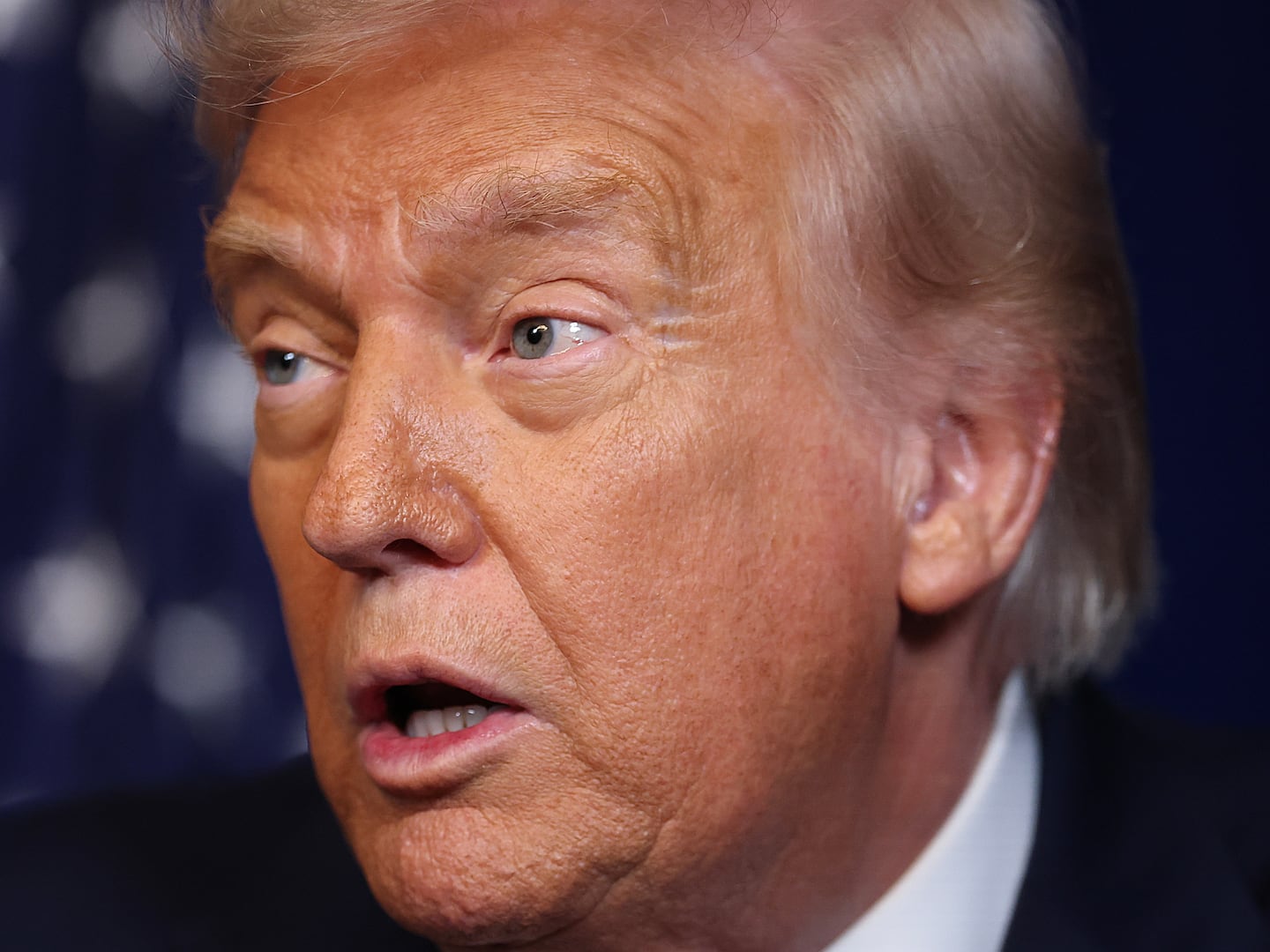If President Trump thought he could profit from occupying the Oval Office, he was apparently very, very wrong.
He himself told Fortune in 2000, “It’s very possible that I could be the first presidential candidate to run and make money on it.”
However, despite the best efforts by his offspring and numerous business and product-licensing ventures, Trump’s net worth has dropped since Inauguration Day, along with revenue from his U.S. golf and real-estate properties, a new examination by Forbes magazine suggests. And he has become such a polarizing figure that “people are afraid to do business with him,” according to the longread by Dan Alexander and Chase Peterson Withorn published Tuesday.
Based on interviews with a reported 200 sources, from industry observers to colleagues and business partners, the wealth-assessing biweekly has determined that Trump is actually losing money as president—thanks to his job at the White House.
Ultimately, Forbes reports, Trump’s presidency is a “net loser” for him, even with a few new policies he helped enact that might benefit his businesses in the long run.
Here are the magazine’s most eye-popping revelations:
Trump’s Net Worth Has Dropped by More Than $1 Billion
Back in late 2016, the president-elect notoriously—and controversially—refused to divest from the Trump Organization when he took the oath of office, sparking a raft of lawsuits about possible conflicts of interest, the emoluments clause of the Constitution be damned.
As a direct result, according to Forbes, Donald Trump’s net worth has fallen to $3.1 billion over the last two years from $4.5 billion in 2015. That is said to put the president a full 138 spots lower than his previous position on The Forbes 400 list, according to the magazine’s calculations. (The magazine says the full list is coming out Wednesday.)
Revenue at His Golf and Real-Estate Properties Has Fallen Dramatically
More specifically, Trump’s golf properties in the U.S. fell by about 9 percent in 2017 for a combination of reasons, including the fact that—even if his politics weren’t off-putting—guests must now put up with metal detectors and bomb-sniffing dogs at his sites.
“It’s not a country-club experience,” a source familiar with Trump’s golf business told Forbes. “It was captivating at first, but it has become tiresome.”
The same issues are reportedly true at the president’s luxury residential real-estate properties, including some 500 condos, co-ops, and mansions, where the brand has taken a major hit. Since Trump announced his run in 2015, condo prices in Trump Tower have fallen every year. They are now about 33 percent off their highs, according to Forbes, which reports that prices are down a full 23 percent at Trump Parc East and 19 percent at Trump Park Avenue.
His Product-Licensing Operation Is Down a Staggering 87 Percent
Many of Trump’s licensing customers disappeared shortly after his campaign began, including Serta and Macy’s. Forbes was unable to confirm that the company has landed a single new deal since 2015. It valued the president’s product-licensing operation at $23 million in 2015; it now sits at $3 million.
“He’s so polarizing that people are afraid to do business with him,” Jeff Lotman, who runs the licensing company Global Icons, told the magazine. “He has significantly tarnished the brand.”
Eric and Don Jr.’s ‘Scion’ Hotel Brand Appears to Be Going Nowhere
Trump’s eldest sons announced a new business venture in spring 2016, theoretically trying to target a less-affluent, Make-America-Great-Again fan base by marketing lower-priced Trump-brand hotels. Eric and Donald Trump Jr. signed one such deal to brand four Scion hotels in Mississippi, with the elder Trump holding a 77 percent stake in the venture—in hopes of profiting from their dad’s popularity in an untapped market.
Instead, those agreements generated just $27,000 in 2017, and no other deals of the kind were ever publicized. Of 35 spots said to be “in the works,” none have materialized yet, Forbes says.
The Opportunity Cost: Trump Would Have Made Millions if He Got Out
The irony? Trump may have been better off by divesting when he had the opportunity, Alexander and Peterson Withorn report.
“Meanwhile, if he’d liquidated, paid capital-gains tax on his entire fortune, and created a blind trust to invest it all in the booming stock market, Trump would be $500 million richer than he is today—without the headaches,” they write.







